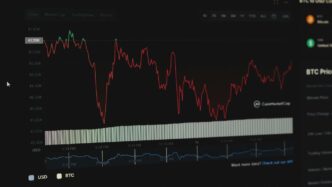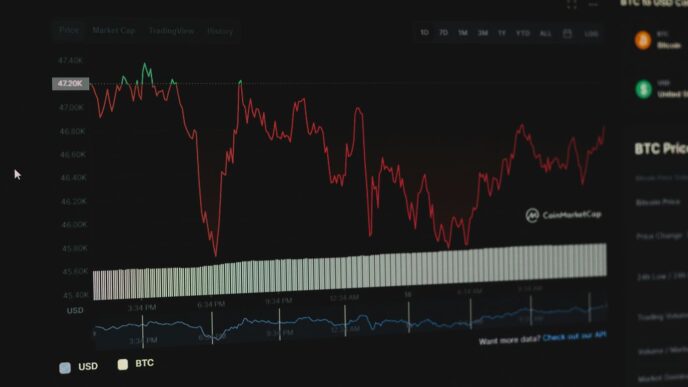Breaking into private equity jobs in Detroit isn’t as mysterious as it might seem. If you’re looking around and thinking, “How do people even get these roles?”—you’re not alone. Detroit’s private equity scene has grown, but it’s still a tight community. You’ll need the right skills, a plan for networking, and a good understanding of how the hiring process works. This guide walks you through what you need to know for 2025, from key skills to practical experience, so you can put your best foot forward and actually land one of these jobs.
Key Takeaways
- Detroit’s private equity job market is growing but still close-knit, so personal connections matter a lot.
- Strong financial skills and real-world experience are more important than fancy buzzwords or degrees alone.
- Networking locally—through events, alumni, and even LinkedIn—can open more doors than just applying online.
- The hiring process can take time, so patience and regular follow-up are important if you want to stay top of mind.
- Internships, analyst roles, or even a personal investment project can give you the edge over other candidates.
Understanding the Private Equity Landscape in Detroit

Detroit isn’t the first city people think of when it comes to private equity, but lately it’s been getting some attention. The city’s history is tied closely to manufacturing and the auto industry, which means investment firms here often look for opportunities that fit the local economy. If you want a PE job in Detroit, you need to know who’s active and what’s happening on the ground.
Key Players and Firms in Detroit’s Market
A handful of well-known investment firms have set up shop in Detroit, but you’ll also find lots of smaller boutique groups and family offices. Here’s a quick breakdown of the typical players in Detroit’s PE scene:
- Regional branches of national private equity companies
- Independent Detroit-based PE firms focusing on manufacturing and industrials
- Family offices managing wealth from longtime Michigan businesses
- Investment arms from local banks or business groups
Most of these firms tend to invest in the Midwest, and they often have a reputation for getting hands-on with portfolio companies. It’s common to see them asking for advice or using platforms like Equity Crowdfunding Analytics to compare returns and spot sector trends.
Types of Private Equity Roles Available
When people hear "private equity," they usually picture dealmakers in fancy offices. In Detroit, the variety of jobs is wider than you’d expect. Here are the types of roles you’ll run into:
| Role | Typical Responsibilities |
|---|---|
| Analyst / Associate | Financial modeling, due diligence, research |
| VP / Principal | Sourcing deals, managing junior staff, portfolio work |
| Operating Partner | Improving efficiencies at portfolio companies |
| Fundraising / IR Specialist | Meeting investors, handling communications |
| Back-Office/Compliance | Handling legal, regulatory, and accounting tasks |
Recent Trends Affecting Private Equity Jobs
The last couple of years have changed the Detroit PE job market in some surprising ways:
- People talk a lot about auto tech and mobility, since the city is still big in cars, but there’s growing interest in healthcare and industrial tech.
- There’s a slow trend toward more platform investments, where firms buy multiple companies in the same area and try to scale up efficiently.
- More firms are open to non-traditional backgrounds, including people from banking, consulting, and even engineering.
- Local firms often put extra weight on real-world operational skills – if you’ve worked for a manufacturer or industrial firm, you’re sometimes seen as a better fit than someone with only Wall Street experience.
If you want to stand out, spend some time learning about which areas are growing, and which firms are actually hiring. Detroit’s PE market is smaller and more personal than in New York or Chicago, and connections matter a lot.
Developing the Right Skill Set for Private Equity Jobs
Landing a private equity role in Detroit in 2025 is not just about who you know—your skills will get you in the room and keep you there. Here’s what matters most, and how you can start preparing, even if you’re new to this world.
Essential Financial and Analytical Skills
Private equity firms in Detroit expect candidates to be sharp with numbers and comfortable dissecting business models. You’ll be knee-deep in balance sheets, income statements, and financial models, sometimes at 7 a.m. with nothing but cold coffee.
Some specific abilities you’ll need include:
- Advanced Excel (building three-statement financial models, sensitivity analysis)
- Valuation methods (DCF, comps, precedent transactions)
- Industry research and due diligence for live deals
- Strong written and verbal communication—explaining why an investment makes sense
Here’s a table showing common skill requirements across entry-level and senior roles:
| Skill | Analyst/Associate | VP/Principal |
|---|---|---|
| Excel modeling | ✔✔ | ✔ |
| PowerPoint pitch building | ✔ | ✔✔ |
| Industry analysis | ✔ | ✔✔ |
| Leadership | ❌ | ✔✔ |
| Negotiation | ❌ | ✔✔ |
Don’t skip the basics. People will notice if you don’t even know how to check if a model actually balances.
Importance of Industry Knowledge and Specialization
It’s not just about technical skills—firms want people who actually know why a deal could work. Detroit’s private equity market often centers on manufacturing, mobility/auto-tech, and healthcare. Try to:
- Follow local deal news and know top local sectors.
- Get familiar with at least one sector in-depth (think suppliers for EV parts, or medical device manufacturing).
- Pick up firsthand stories—intern, or shadow someone, even if it’s unpaid at first.
Reading fintech market insights is a quick way to keep up with shifts in the finance industry that spill into private equity, too.
Certifications and Educational Pathways
While nothing beats real-world experience, some certifications will absolutely help your resume stand out. Here’s what most Detroit firms like to see:
- Bachelor’s degree in finance, business, or accounting (a must)
- MBA or Master’s in a relevant field—big plus, especially from Michigan or MSU
- CFA (Chartered Financial Analyst), for those targeting investment-focused roles
Short on time? Consider these steps:
- Take an online financial modeling course.
- Attend a local business school event or seminar.
- Find a mentor who’s worked at a Detroit PE shop.
It’s not all about the letters after your name, but in a tight market, every advantage helps. Make a plan to start building these skills now, and you’ll find breaking into private equity in Detroit a whole lot easier.
Building a Strategic Network Within Detroit’s Investment Community
Networking isn’t just something you do once, hope for the best, and move on—especially in Detroit’s private equity world. The folks you meet can completely influence your job search and even your long-term career. Here’s how to put yourself out there and actually get noticed.
Networking Events and Professional Organizations
Attending real-life events is still one of the fastest ways to meet people in private equity. Detroit is full of meetups, conferences, and workshops that can get you face-to-face with the right crowd. If you’re on the hunt, check out these types of groups:
- Local chapters of CFA Society, ACG Detroit, and Michigan Venture Capital Association
- Workshops or summer panels hosted by area business schools
- Nonprofit gatherings that support economic growth, like things offered by ProsperUs
Don’t just show up and hand out your resume, though. Bring real questions and be ready to listen—people remember those conversations.
Connecting with Private Equity Mentors and Alumni
Seriously, having a mentor makes a difference. Someone just a few years ahead of you (or even much more senior) can offer blunt advice you can’t get from a LinkedIn article. Here’s a quick way to start building these relationships:
- Reach out to alumni from your school already working in private equity around Detroit.
- Ask for a 20-minute coffee chat or phone call—don’t overthink it.
- Follow up with a thank-you note and stay in touch every few months.
Mentors can connect you to opportunities before they go public and help steer you through tough choices or tricky negotiations.
Leveraging LinkedIn and Social Media in Detroit
Detroit’s investment scene might feel small, but LinkedIn reveals a whole network you can reach from your couch. Here’s what actually works:
- Make your profile look sharp (headline, real description of your deal experience, and relevant coursework if you’re early-career)
- Join Detroit-focused investment and finance groups
- React and comment with substance—if you only hit ‘like’ on everyone’s posts, nobody will notice
When connecting, always send a short personalized note. Something like, “Hi, I see you’ve worked with private equity firms in Detroit. I’d appreciate connecting to learn a bit more about the local market.”
Networking sounds like a big time commitment, but if you work it into your routine, you’ll meet people who actually want to help. By mixing in the right events with smart online moves, you put yourself on the radar of Detroit’s decision makers.
Navigating the Private Equity Recruitment Process

If you’re new to this, the path into private equity can feel like its own full-time job. It has a lot of steps and each one is a little different from other finance jobs you might have seen. Getting in means knowing what firms expect and how to talk about what you can offer.
Crafting a Standout Private Equity Resume
Your resume shouldn’t just be about listing jobs and schools – it’s your shot to tell firms why you’re the right fit. Here’s what you want to include:
- Focus on concrete results: Highlight deals, projects, or analysis with numbers attached. Did you work on a $40 million acquisition? Say so.
- Show progression: Think about the story your experiences tell. If you’ve had promotions, or you went from banking to an internship at a fund, connect the dots for the reader.
- Keep it concise: One page. That’s it. They’re busy and will toss it if it rambles.
Table: Example Resume Metrics
| Section | Example Bullet |
|---|---|
| Experience | Led due diligence for $25M tech acquisition |
| Skills | Built three-statement financial models from scratch |
| Results | Identified $300K in annual cost savings for portfolio co. |
Excelling in Technical and Behavioral Interviews
A private equity interview is like a two-part test. One part is about technical chops, the other is about how you think on your feet and work with people.
- Technical interview: Modeling LBOs, evaluating investments, and sometimes even paper-based math. Don’t just memorize – practice until you can talk through your logic out loud.
- Behavioral interview: The old favorites – “tell me about a time you dealt with conflict," or “describe your toughest deal.” Be honest. They can tell when someone’s just reciting what they found on forums.
- Read about current industry issues too, maybe from sources covering ongoing innovation in business. They’ll expect you to have an opinion.
Understanding Typical Recruitment Timelines
Private equity hiring can move fast – but sometimes it’s a waiting game. Detroit’s market is getting more competitive, but key timelines still follow a pattern:
- Analyst/Associate recruiting starts as early as August for jobs starting the next summer.
- There may be “off-cycle” roles if someone leaves or if a new fund gets raised.
- Most interviews, offers, and even rejection emails get sent out within a month of first contact.
So, if things are moving slow, don’t stress. Check in politely after two weeks, but don’t go overboard. It’s not unusual to wait a bit between steps. If you’re juggling multiple processes, keep a simple spreadsheet to track where you stand at each firm.
Getting a job in private equity in Detroit isn’t about luck. It’s about working every step, knowing what firms are looking for, and being ready to show them you have it. Stay organized. Stay persistent. And follow up without being a pest.
Positioning Yourself for Success in Detroit’s Competitive Market
Breaking into private equity in Detroit isn’t something you do by chance—it takes intention and a methodical approach. It’s not only about sending out resumes but about making sure your efforts are focused and strategic. With new firms coming online and an increasing number of professionals drawn to this space, standing out matters more than ever. Here’s how you can improve your odds.
Identifying and Approaching the Right Firms
Detroit has a small but growing pool of established PE shops and boutique investment firms. To avoid spinning your wheels, take the time to target the organizations where your background fits best.
- Start by narrowing down the list: research firms based out of Detroit, looking at their portfolio, deal size, and investment focus.
- Prioritize organizations that invest in sectors you know well or where you have a personal interest.
- Use company websites and their LinkedIn pages to find out who heads recruiting or which partners have open doors for informational chats.
- Don’t shy away from applying to analyst or entry-level roles at firms known for promoting from within; many in Detroit start here before moving up the ladder.
A simple table to keep track of your progress can help:
| Firm Name | Sector Focus | Contact Person | Next Follow-Up |
|---|---|---|---|
| Motor City PE | Manufacturing | Sarah Lewis (HR) | Oct 14, 2025 |
| Lakeside Ventures | Tech, Healthcare | Jake Thomas (MD) | Oct 21, 2025 |
| Great River Cap | Real Estate | Email Sent | Oct 19, 2025 |
Effective Strategies for Following Up and Staying Top of Mind
Following up isn’t just about sending a “just checking in” email. Staying memorable is part of the game, but you want to do it in a way that’s subtle and respectful.
- Send a thank you note after every interview, ideally within 24 hours.
- Reference a topic from your conversation to show you paid attention.
- Share a relevant article or Detroit market update with the person if it comes up in the news, positioning yourself as plugged into local trends.
- If you haven’t heard back, wait about 10 business days before sending a gentle follow-up. Mention any new skills, certifications, or significant achievements since your last touchpoint.
Delivering the right follow-up can go a long way, according to private equity resume tips in this article.
Balancing Multiple Offers and Negotiating Compensation
When you finally land an offer—or even more exciting, a couple at once—you need to play your cards wisely. Detroit compensation can vary by firm size and fund focus, so weigh your choices carefully.
- Ask about the breakdown of salary, bonus structure, and any profit-sharing or carry opportunities.
- Get details on typical working hours and expectations—PE is demanding, so you’ll want clarity.
- Don’t jump at the first offer unless you’re sure; communicate honestly with all parties about your timeline and other commitments.
- Use your other offer (if you have one) as gentle leverage, but do it respectfully and with gratitude.
Don’t overlook perks like health coverage, 401(k) matching, or work-from-home flexibility—they make a difference long term.
Landing a private equity role in Detroit can feel pretty intense, but with some structure and a little grit in your process, you’ll find yourself better prepared than most. Getting this right is half the battle—and the other half comes down to your ability to be persistent without being a pest.
Gaining Practical Experience and Growing Your Credentials
No matter how much you read about private equity, nothing beats hands-on experience. Getting your foot in the door takes more than just book smarts; you’ll need real-world exposure and proof that you’re committed.
Pursuing Internships and Analyst Roles
Finding internships at private equity firms in Detroit can be tough. Most firms are small, and the openings fill fast. Start early and apply to anything remotely related to finance or investing. Even a stint at a consulting or investment banking shop can matter. Here are a few ways to make yourself more attractive:
- Volunteer with investment clubs or competitions at your college.
- Assist professors or grad students with research about Detroit’s financial market.
- Look for off-cycle or part-time roles at smaller boutique firms, not just big names.
Internships, even unpaid ones, are a bet on your future. For some insight into where PE internships lead, here’s a quick table of possible entry points and long-term tracks:
| Internship Type | Typical Exit Opportunities |
|---|---|
| Private Equity Analyst/Intern | Full-time Analyst, MBA, other finance roles |
| Investment Banking Intern | PE Analyst, biz dev, consulting |
| Finance/Consulting Intern | Corporate finance, PE, VC |
Leveraging MBA and Graduate Programs in Michigan
Many Detroit PE professionals went through local MBA programs. Michigan Ross, Wayne State, and others offer tracks that specialize in investment or private equity coursework. These schools often partner with local firms for recruitment nights, case competitions, and projects that relate directly to Detroit deals. When picking a program, consider:
- Alumni and industry connections in Detroit
- Hands-on classes focused on deals, due diligence, or company valuations
- Clubs and case competitions focused on investing
- Opportunities for internships during your studies
Getting that MBA or similar credential signals to employers that you’ve got the drive—and it could land you in networks full of current private equity pros.
Building a Personal Investment Track Record
Nothing says “I get investing” like showing your own results—even if it’s a small portfolio. Set up a public (or shareable) spreadsheet, and track your decision-making process. If you’re able to build a record with:
- Individual stock trades
- Small business investments (even as a silent partner)
- Participation in competitions or simulated funds
…you’ll have a story that stands out in interviews.
People who keep learning and doing, even outside traditional jobs, show grit. And grit gets noticed. To keep up with what’s going on in private equity, it can help to read regular news and analysis—sites like TechBullion usually have some good nuggets and interviews from people in the industry.
In the end, your path into Detroit’s PE scene might look totally different from someone else’s. It’s about picking up experience, building credentials, and staying in the conversation until your shot comes up.
Wrapping Up: Your Next Steps Toward Private Equity in Detroit
So, there you have it. Landing a private equity job in Detroit isn’t some wild dream—it’s totally doable if you put in the work. The city’s market is growing, and there’s room for people who are willing to learn, network, and stick with it. Start by figuring out what kind of firm you want to work for, then get your resume in shape and reach out to people in the industry. Don’t get discouraged if things move slowly; private equity is all about playing the long game. Keep building your skills, stay in touch with your contacts, and be ready when the right opportunity pops up. Detroit’s private equity scene is waiting for folks who are persistent and ready to jump in. Good luck out there—and don’t forget to keep learning along the way.
Frequently Asked Questions
What kinds of private equity jobs are there in Detroit?
In Detroit, you can find a range of private equity jobs. Some people work as analysts or associates, focusing on researching companies and helping with deals. Others might work in fundraising, helping firms get money from investors. There are also jobs in operations, where you help companies grow after they get investment.
What skills do I need to get a private equity job in Detroit?
You need to be good with numbers, especially understanding financial statements and doing math quickly. Knowing about Detroit’s industries, like cars and real estate, can help too. Many people working in private equity have degrees in business or finance, and some have extra certificates like the CFA.
How can I meet people in Detroit’s private equity community?
You can go to local networking events or join groups like the Detroit Economic Club. Reaching out to alumni from your school or connecting with people on LinkedIn is also a good idea. Try to find mentors who can give you advice and introduce you to others.
What should I put on my resume for a private equity job?
Make sure your resume shows you’re good at analyzing numbers and solving problems. Include any internships, finance classes, or investment clubs you’ve joined. If you have experience with real estate or Detroit businesses, mention that too. Keep your resume simple and clear.
How do I prepare for private equity interviews in Detroit?
Practice answering questions about deals you’ve worked on or investments you’ve studied. You might get math problems or be asked how you’d improve a business. Also, be ready to talk about why you want to work in Detroit and what you know about the city’s business scene.
Is it important to get an MBA to work in private equity in Detroit?
An MBA can help, but it’s not always required. Some people start as analysts right after college and work their way up. If you want to move into higher-level jobs or switch into private equity from another field, an MBA from a Michigan school can make you stand out.














